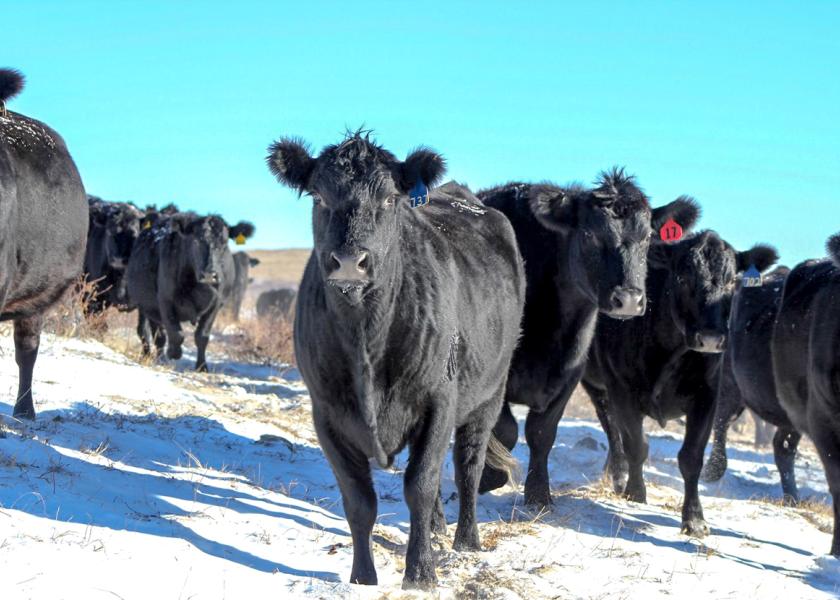How Much Water do Cows Really Need During Cold Weather?

It’s no surprise that the main topic of conversation in the winter is how to help cows maintain condition through cold temperatures. Supplementation and feeding are always on producers’ minds, but one often overlooked topic during cold weather is water. How much water do cows really need during cold weather?
Growing up in Nebraska, our cows were always grazing crop residues during the winter and there was rarely a natural water source. Because of this, water was hauled. Some Oklahomans look at me aghast when I tell them this, but I can honestly say it was just part of the job. Instead of supplementing cows with feed most of the winter, we hauled water.
A fact of beef production is that decreased temps increase the need for additional energy. This extra energy often comes in the form of dry feeds such as hay, byproduct cubes, or commodity blends. Water is essential to helping cows digest this additional feed. Limiting water will in turn compromise feed intake and make it very hard for cows to maintain weight. Another factor that affects water need is the stage of production. The need for water will increase with the demands of production. For example, lactating cows will require more water than pregnant, dry cows. Water intake data collected by OSU and other research institutions has provided baseline water intake data for all production stages of cattle so that people hauling water or building new water infrastructure can estimate total water needs by cattle.
So how much water do they need? Water requirement guidelines are listed in OSU factsheet AFS-3299 “Estimating Water Requirements for Mature Beef Cows”. This factsheet reports 1300-pound cows experiencing 40°F require approximately 9-15 gallons of water daily. The lower end of that scale would apply to open or pregnant, non-lactating cows while the upper limits apply to lactating cows.
Further research evaluating this range of water intake is currently being collected by Dr. Dave Lalman and his research team. In the current study, 5-year-old cows weighing an average of 1363 pounds with calves at side have been consuming an average of 15 gallons since mid-November. Consumption by the calves is included in this average but Dr. Lalman said it would be accurate to assume they are drinking 1-2 gallons of this total amount. That brings up a good point about the importance of water for calves. To ensure calves get enough to drink, fill tanks high enough so shorter animals can reach the water level. Natural water sources should be chopped so that calves can access the water source safely.
Water is usually a “hot weather” topic, but its importance should not be overlooked in the winter. Dehydration is an added stress for cows in cold weather. Help cows deal with winter stress and maintain their body condition by ensuring they have adequate water.







